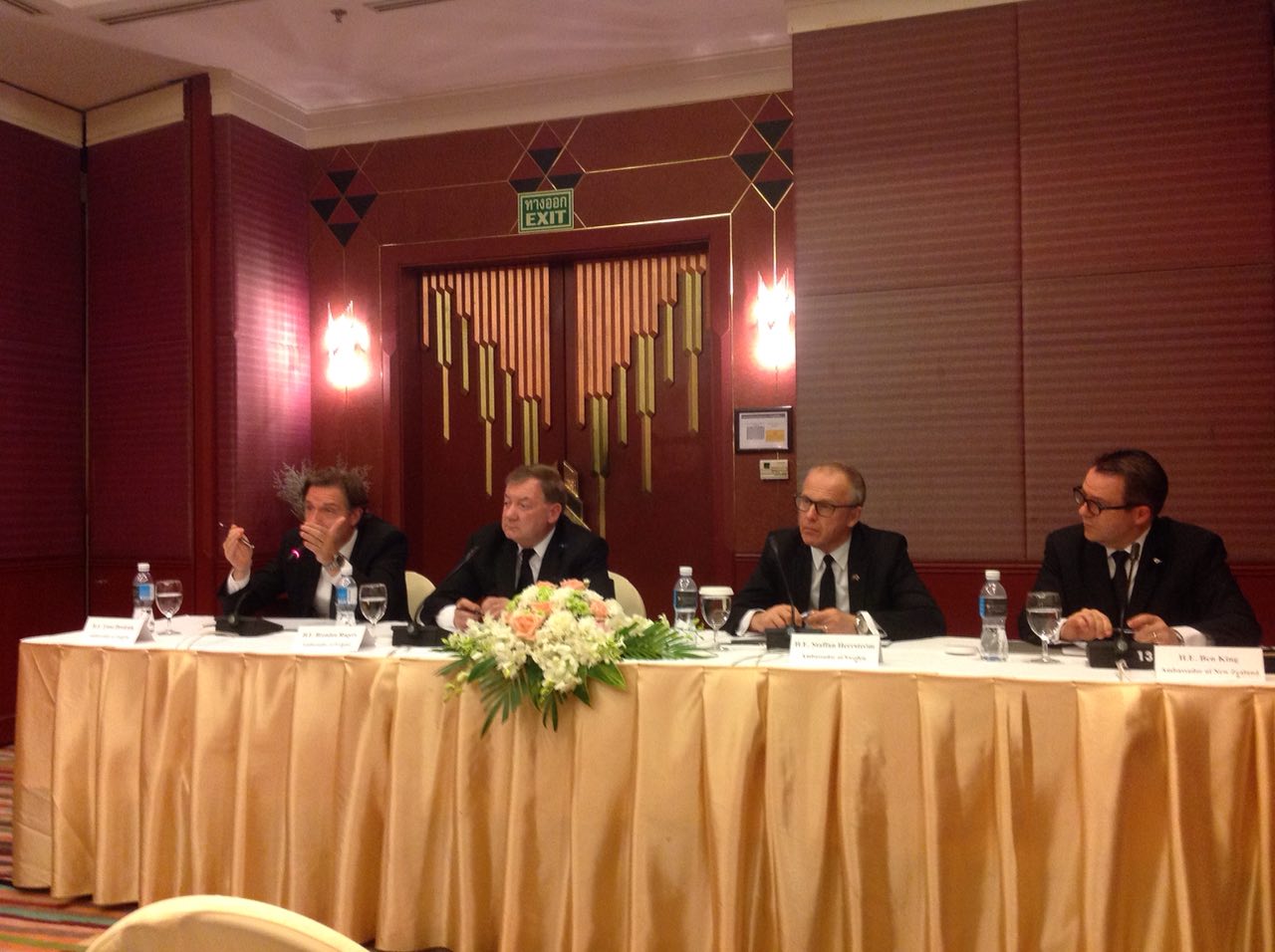KHON KAEN – On Monday the heads of four diplomatic missions to Thailand stressed the importance of good governance and rule of law, and expressing concerns about a narrowing of freedom of expression in the country at a press conference in Khon Kaen City.

(from left) Ambassador of Austria Enno Drofenik, Ambassador of Ireland Brendan Rogers, Ambassador of Sweden Staffan Herrström, and Ambassador of New Zealand Ben King held a press conference at Khon Kaen City’s Pullman Raja Orchid Hotel on Monday.
On the rare occasion of a joint visit to the Northeast, Ambassador of Austria Enno Drofenik, Ambassador of Ireland Brendan Rogers, Ambassador of New Zealand Ben King, and Ambassador of Sweden Staffan Herrström praised the United Nations’ Universal Periodic Review (UPR) as a way to monitor and engage with the human rights situation in Thailand.
“The UPR is a great way for the international community to work together and identify areas in which we can make recommendations,” says Ambassador King. “We look for ways to help countries that face challenges.” He added that New Zealand and its European counterparts offered a number of recommendations to Thailand.
“We encouraged Thailand to increase freedom of expression and especially to amend the Computer Crime Act,” says Ambassador Herrström. “Widening people’s freedom of expression is key to this country’s moving forward with democracy.” However, the Thai government did not accept Sweden’s recommendation.
Last year in December the government passed amendments to the controversial Computer Crime Act that critics says now enables the junta to police the internet and curb dissent.
A second recommendation by Sweden concerned the acknowledgment of land rights, which is one of the major issues in the Northeast. Mr. Herrström said that his government was pleased that Thailand agreed on setting up a national action plan on business and human rights.
Ambassador Drofenik stressed Austria’s commitment to support good governance and democracy in Thailand and beyond. “We believe in inclusive decision making processes and as an embassy we always monitor the situation of civil political rights report it back home,” he says.
The UPR was established in 2006 as the first international mechanism under the UN Human Rights Council to examine the human rights situation of all 193 members states. Thailand was under review of the UPR the last time in May 2016.
On their visit to Khon Kaen, the four ambassadors met with the Governor of Khon Kaen Province, the President of Khon Kaen University, the Director of the Mekong Institute and the Chairman of the Khon Kaen Chamber of Commerce. The ambassadors also joined the Khon Kaen International Marathon on Sunday.




